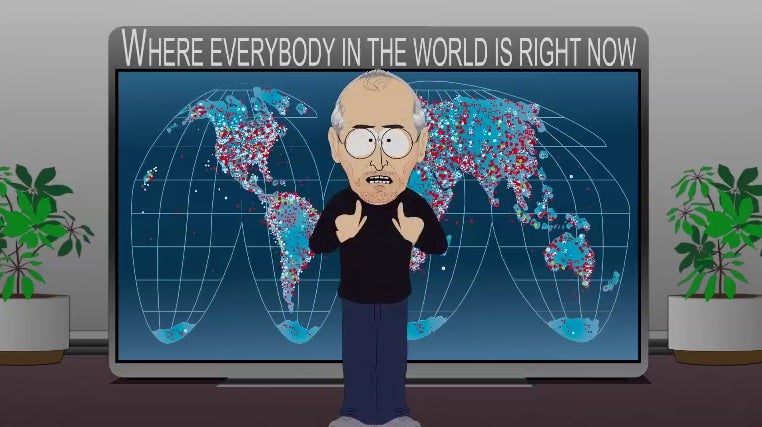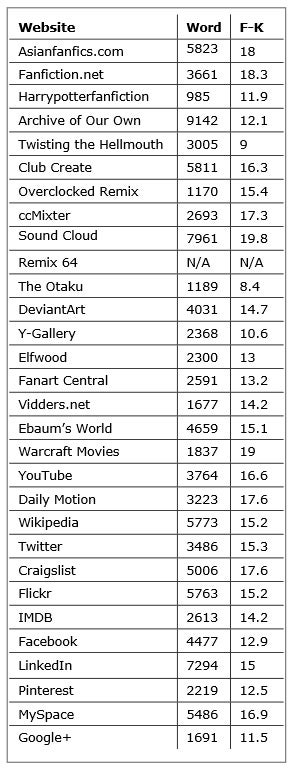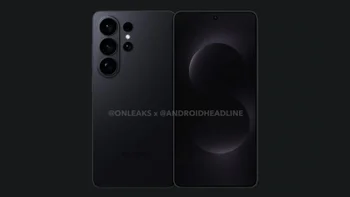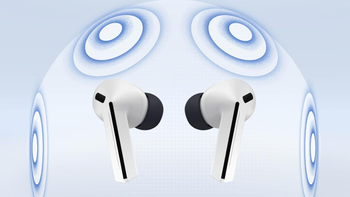It makes for a lively conversation when we learn about opt-in or opt-out programs that gather our information to be sold for
purposes of marketing. It makes for an even more lively conversation when it involves
mass gathering of data for some government agency.
The fact is though, we, as consumers, are the grease that makes all these mechanisms work. What we may not realize is just how messy that grease can be. Too often, we just click or tap
“I accept” to whatever mess of words confronts us when we want to start using an app or service.
When it comes to the services nearly all of us use, like Facebook, Twitter, Google, Instagram, Pinterest, et al, the terms of service we so quickly pass by, tens-of-thousands-of-words, are the portals that so many of us may ultimately complain about when it comes to personal privacy. “Click here to accept.”
The apps we use, the information we share, is subject to the terms and conditions that are so long that researchers at the Georgia Institute of Technology figure it would take hours to read through some compositions. Then there is what we actually agree to with these services, in some cases, it literally amounts to “anything goes.”
Researchers at Georgia Tech estimate it would take over 8 hours of comprehensive reading to get through all the privacy policies of these popular social and content sharing sites
The Georgia Tech research looked at 30 social networking and community sites that center around us sharing information and content. Some of the terms make sense, and we understand the nature of the need for us to permit certain use by the hosts of these services. However, the researchers figure many of us would not know that even if we
did read the terms and conditions because they are written in such a complex fashion that it takes an average sophomore-level college education or higher to understand any of it.
Take the near ubiquitous Facebook as an example.
“You grant us a nonexclusive, transferable, sub-licensable, royalty-free, worldwide license to use any IP content that you post on or in connection with Facebook.” That is just part of nearly 4,500 words in the social network’s terms of use. If you can read
and comprehend at an average of 250 words per minute, it would take about 20 minutes to get through all of it. It basically means the company can do what it wants with what you share, and it owes you nothing for the privilege. For those of us that take lots of pictures of dinner, our dogs and cats, such terms mean little. For those of us that share a lot more than food, we may not be so keen with it, but we
“agreed.”
Pinterest is another popular social network, adorned with a lot of cool pictures. They all tell a lot of different stories, and thus a lot of media is maintained as a result. According to the terms of its service, it lays out all the same legalese,
“Pinterest allows you to post content, including photos, comments, links, and other materials. Anything that you post or otherwise make available on our Products is referred to as ‘User Content.’ You retain all rights in, and are solely responsible for, the User Content you post to Pinterest.” However, Pinterest also shares plain language explanations next to each point,
“More simply put: If you post your content on Pinterest, it still belongs to you but we can show it to people and others can re-pin it.” As you might expect, Pinterest's clarity is the exception to rule when it comes to helping navigate through thousands of words of gobbledygook.
The folks at Georgia Tech that read through over 100,000 words of legalese and applied the Flesch-Kincaid Grade Level Score as a way to determine how easy it would be to understand all the legal mumbo-jumbo. The F-K scale readability tests comprehensibility of a given block of the English language. The lower the score, the more difficult it is to read, and anything that scores under a 30 is best understood by someone who has graduated college. All of the terms of the popular services we use regularly scored well below 30.
Of the most common social networks, who had the "lowest" (thus most complex language) score?
Google+ earned that distinction with a score of 11.5. MySpace, if you can still call it relevant, scored the highest in the social arena with a score of 16.9. Facebook, LinkedIn, and Twitter fell in between at 12.9, 15, and 15.3 respectively. Pinterest was a 12.5, but has the simple language explanations. Of course, on a scale like the Flesch-Kincaid Grade Level Score, which scores on a range from zero to 100 (100 meaning understandable by an average 11-year-old), we are really just splitting hairs.
So while you really should read all these things, admit it, you probably don't, and you would not be alone. In light of the newest update coming to Facebook's mobile apps, which will use your smartphone's microphone to listen for media you are consuming, just remember the age we live in now. It is not just about geo-location, or simply what we write (though you could say we live in an age of "we are what we publish"), or even what we listen to, it is about the fact that like it or not, we give tacit permission for all of it to take place on a daily basis.
references: The New York Times and Georgia Tech (PDF)





![Some T-Mobile users might be paying more starting in March [UPDATED]](https://m-cdn.phonearena.com/images/article/176781-wide-two_350/Some-T-Mobile-users-might-be-paying-more-starting-in-March-UPDATED.webp)










Things that are NOT allowed:
To help keep our community safe and free from spam, we apply temporary limits to newly created accounts: